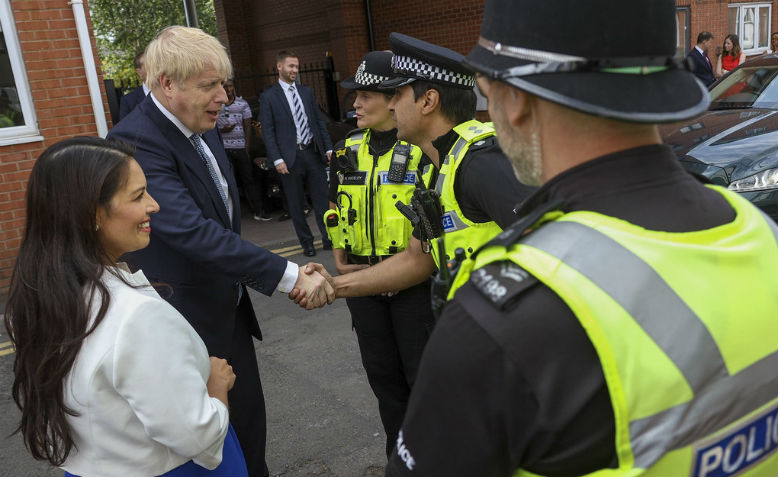 Prime Minister Boris Johnson visits police in Birmingham. Photo: Flickr/Number 10
Prime Minister Boris Johnson visits police in Birmingham. Photo: Flickr/Number 10
In the face of Boris’ bombastic reshuffle, fence-sitting is not an option, argues Reuben Bard-Rosenberg
Conservative politicians are typically at their most Eurosceptic when they are furthest from executive power. William Hague is a prime example, and to a more limited extent, so is David Cameron.
This reflects the particular social and political mash up that constitutes British conservativism. In the final analysis, it depends upon its relationship with a British business class whose dominant interests are served by the European system: by the huge single market that it offers, and the neo-liberal strictures it imposes. Yet as an electoral vehicle and a membership organisation, the Tory Party benefits from its ability to fire up nationalist, post-imperial passions. Hence its politicians tend to be Eurosceptic when they are working their way up the party, and ultimately more Europeanist when they are governing on behalf of British capitalism.
As such, a large part of me expected the nationalist bluster of Johnson’s internal election campaign to be balanced out by normalising measures once he assumed office. And yet my expectations have so far been confounded. The aggressive reshuffling of the cabinet suggests that we will at the very least see a continuation of the bluster and perhaps its evolution into something more than bluster.
The new Tory leadership have calculated that they can exercise a degree of independence from the business class over the European question, since the latter fear a Corbyn government more. Furthermore Johnson and Co. intend to buy off a section of business by going further than was previously considered politically viable in privatising and deregulation the economy.
Essentially we are about to see a concentrated effort to reorganise society on the basis of greater inequality, racially, sexually and economically – regardless of the final settlement between Britain and Europe. Despite the never-ending efforts by counter-punctual blue Labour centrists to posit some kind of trade off between racial equality and social justice, we will see that attacks on both are mutually reinforcing.
There are two important forces capable of opposing this social and political transformation. The first is the Corbyn leadership who, with the right approach and the determined support of a large membership, have the capacity to kick Johnson out of parliamentary office. The second crucial force is is our own capacity to make Britain ungovernable, in the streets and in the work places.
A wide ranging battle over social and economic equality is upon us. The time for taking sides has very much arrived.

